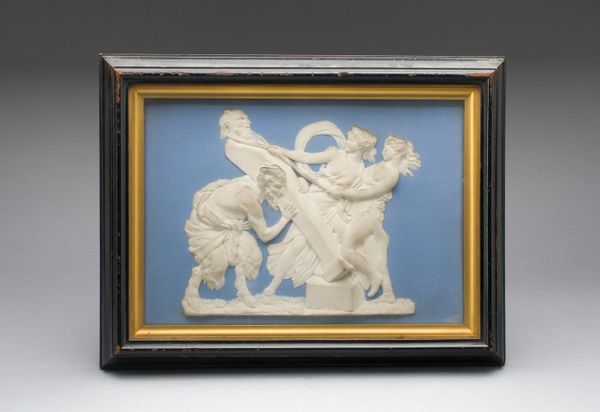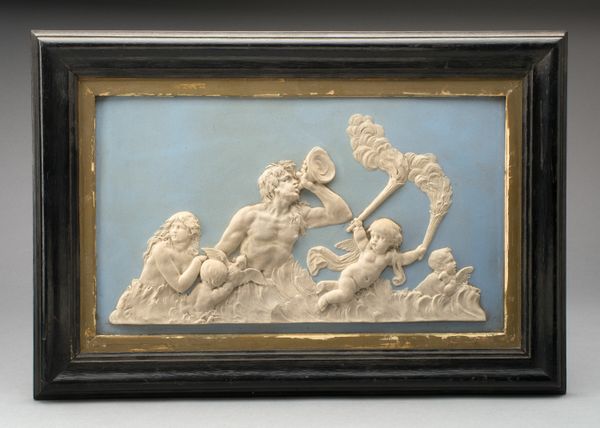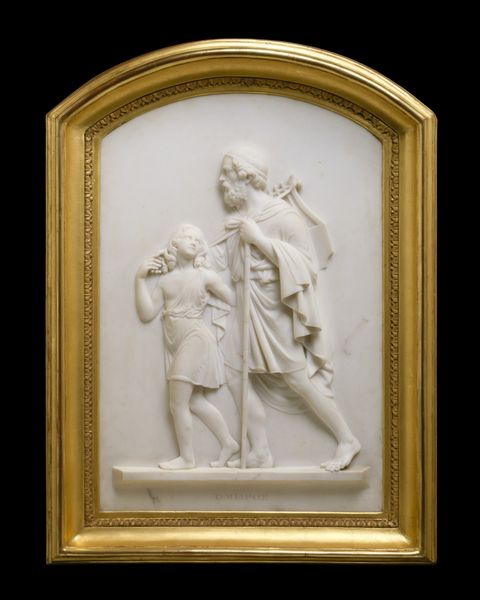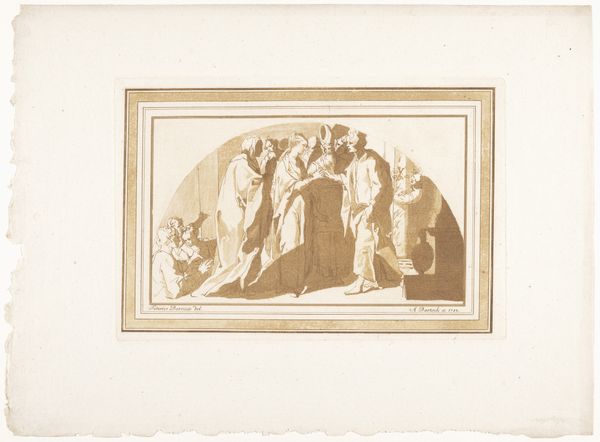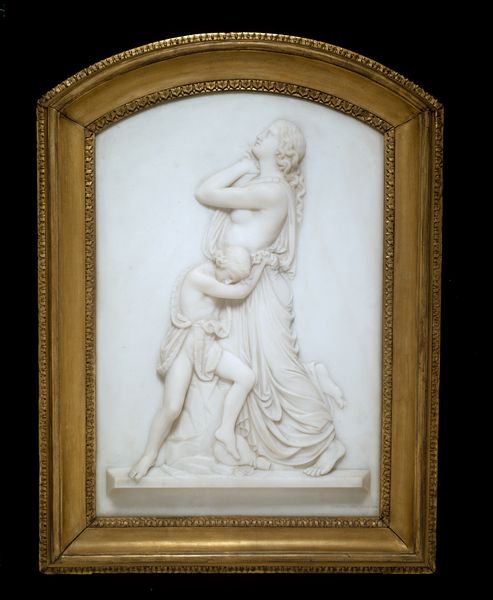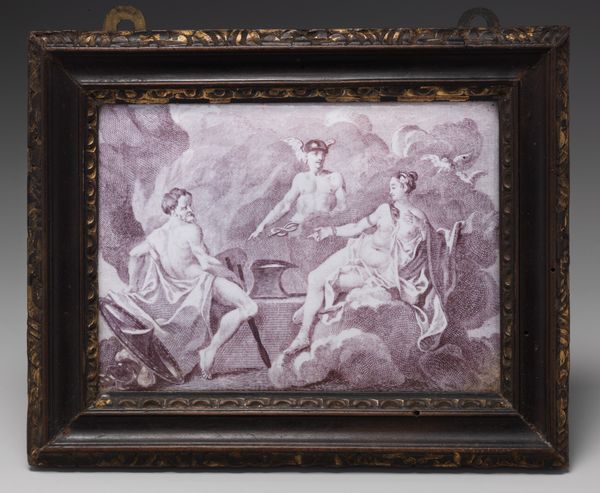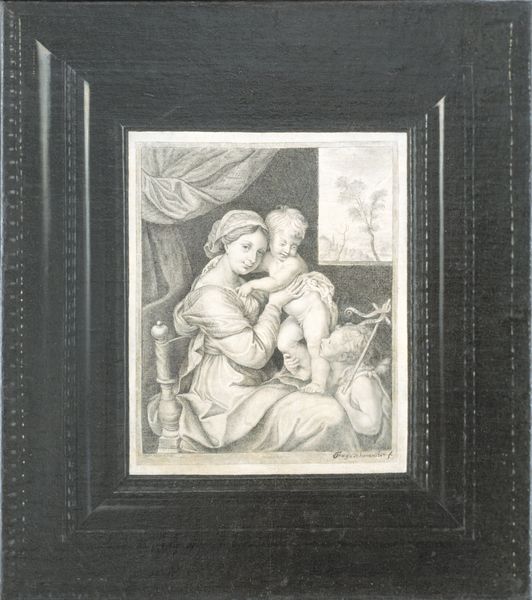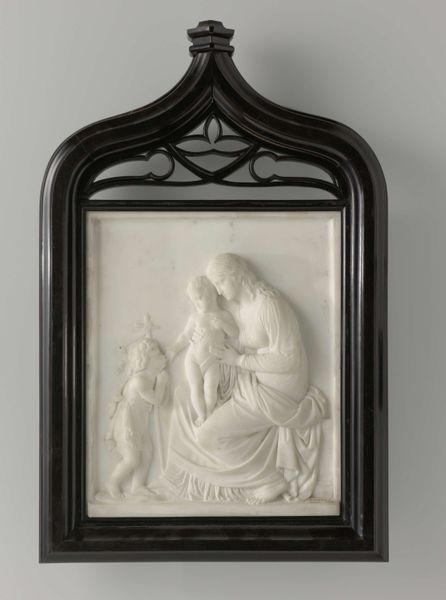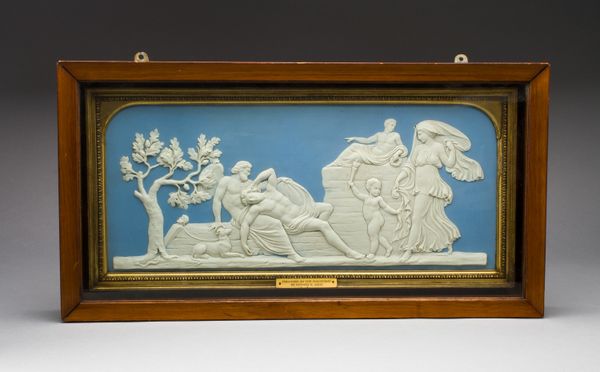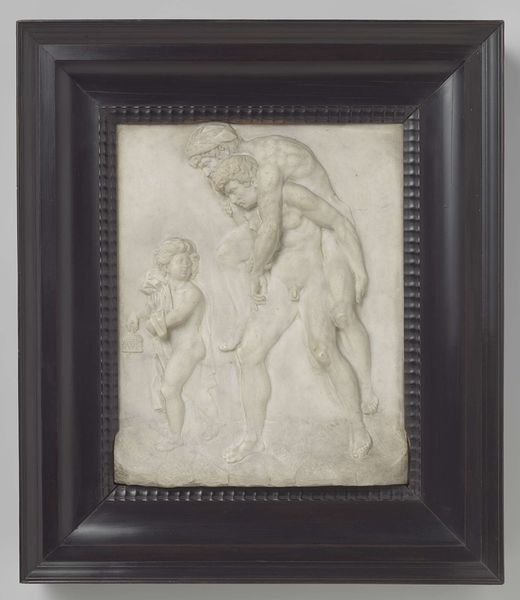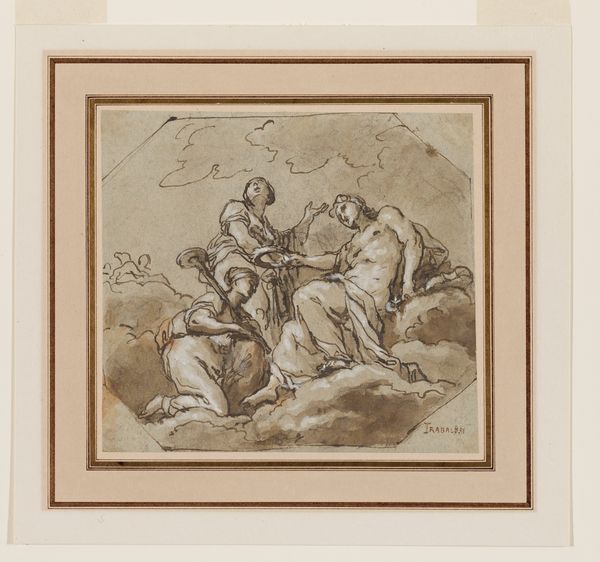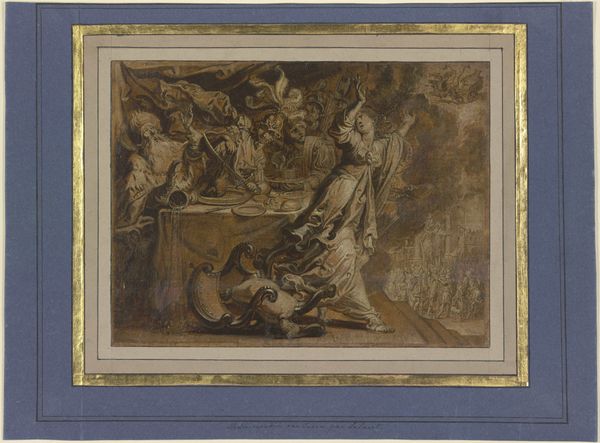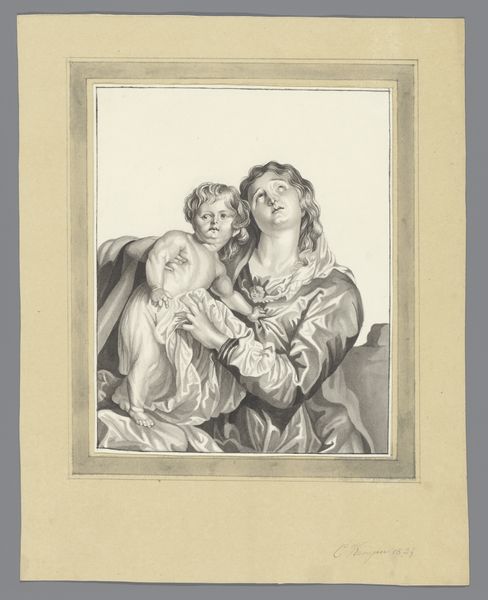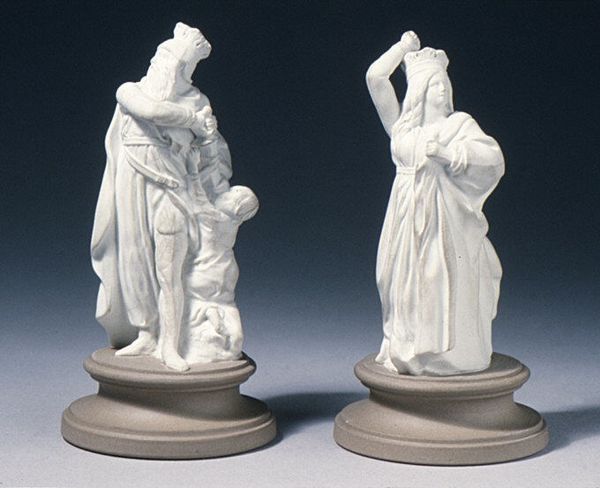
Mercury Joining the Hands of Britain and France 1787 - 1790
0:00
0:00
relief, ceramic, sculpture
#
portrait
#
neoclacissism
#
allegory
#
war
#
relief
#
ceramic
#
figuration
#
framed image
#
sculpture
#
history-painting
#
decorative-art
Dimensions: 36 × 37.8 × 3.7 cm (14 3/16 × 14 7/8 × 1 7/16 in.) Frame width: 7 cm (2 3/4 in.)
Copyright: Public Domain
This plaque, titled "Mercury Joining the Hands of Britain and France" was produced by the Wedgwood Manufactory. It’s made from Jasperware, a type of unglazed stoneware famous for its matte finish and delicate bas-relief decorations. Jasperware was developed by Josiah Wedgwood in the late 1770s. He aimed to mimic ancient Roman cameo glass. The process involves firing colored clay at high temperatures, and then adding contrasting white details to achieve a cameo effect. In this case, a pale blue background is contrasted against pure white figures. This plaque would have been made using molds. The crispness of the figures is testament to the skill of the model-makers and the workers who pressed the clay. Wedgwood was a master of marketing. This plaque would have been aimed at wealthy consumers, eager to display their knowledge of classical art and allegorical scenes of diplomacy. It would have been seen as a luxury item, but also as a symbol of enlightened taste, blurring the boundaries between art and craft. Ultimately, what we see here is clay transformed through clever production into a valuable commodity.
Comments
No comments
Be the first to comment and join the conversation on the ultimate creative platform.
